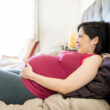Polycystic ovary syndrome (PCOS) is a common female hormonal disorder, characterized by multiple quistes growing on or within the ovaries. PCOS is found in approximately 8-15% de mujeres, but because the disease is both underresearched and underdiagnosed, the number of women affected could be significantly higher. Some of the most common symptoms of PCOS are excessive acne, hair growth or hair loss, heavy, painful, and irregular periods, insulin resistance, and infertility.
There is an increasing number of studies showing how hormonal disorders like PCOS affect far more than “just” the reproductive system. For example, we have previously written on the connection between PCOS and memory loss, demonstrating the neurological impact of issues with the reproductive system. Still, you may be surprised to learn that recent research shows that women with PCOS could be at a higher risk for hearing loss, specifically high frequency hearing loss.
Recent research shows that women with PCOS could be at a higher risk for hearing loss, specifically high frequency hearing loss.
What is high frequency hearing loss?
High frequency hearing loss is a form of hearing loss that makes it difficult for you to hear frequencies between 2000–8000 Hz. People with this type of hearing loss may struggle to hear high pitched voices or sounds in noisy environments. It may also be difficult for them to decipher between different sounds, making everything sound muffled.
High frequency hearing loss can be caused by excessive loud noise exposure, aging, or a variety of medical conditions. It is often sensorineural, meaning it is caused by damage to the auditory nerve pathway or the inner ear.
What is the relationship between PCOS and hearing loss?
It is well known that medical conditions like diabetes, insulin resistance, high blood pressure, heart disease, and other conditions associated with síndrome metabólico can cause hearing loss [1]. We also know that women with PCOS have a higher risk of insulin resistance and diabetes, and that (as we have previously written about) there is a connection between menstruaciones abundantes (a known symptom of PCOS) and heart disease. With this evidence in hand, it makes sense that a 2024 systematic review and meta-analysis found that there could also be an association between PCOS and hearing loss [2].
Is it hyperandrogenism, or something else? Addressing the confounding variables between PCOS and hearing loss
Given the difficulty of parsing out whether hearing loss is due to PCOS alone, or due to the connection between hearing loss and metabolic syndrome diseases generally (a confounder noted by many of the studies included in the 2024 systematic review), un estudio specifically looked at how hyperandrogenism (i.e., the excess androgens, or male sex hormones, which is a hallmark of PCOS) affected PCOS patients. Researchers noted that hormonal fluctuations can affect the function of the inner ear, positing that unhealthy hormonal fluctuations caused by hormonal disorders like PCOS, could lead to hearing loss. Their findings pointed specifically to the potential for high frequency hearing loss with PCOS [3].
A small study conducted in Turkey aimed to further address this connection between the hyperandrogenism in PCOS and hearing loss [4]. The researchers compared the hearing thresholds of 40 women without PCOS and 40 women with PCOS. They did not find a significant difference in the lower hearing thresholds between the two groups, but they did note a significant difference in the women with PCOS’ higher hearing thresholds.
This study noted that diseases like insulin resistance, hyperinsulinemia, and other inflammatory diseases commonly found in PCOS patients often damage blood cells, leading to earlier high frequency hearing loss. Because of the very small sample size of this study, the researchers were unable to make a definitive conclusion about the direct relationship between PCOS and hearing loss; however, it did demonstrate that the questions of previous studies, namely that there could be a link due to other diseases related to PCOS, warrant further research.
How do you treat hearing loss?
The best treatment for hearing loss is preventative treatment: Protect yourself from excessive loud noise exposure and schedule regular hearing tests with an audiologist. Women with PCOS or those with diseases like diabetes, insulin resistance, or heart disease who are at a higher risk for hearing loss, should talk with their doctors about the appropriate treatment methods for those diseases and care for their bodies accordingly.
Women with PCOS or those with diseases like diabetes, insulin resistance, or heart disease who are at a higher risk for hearing loss, should talk with their doctors about the appropriate treatment methods for those diseases and care for their bodies accordingly.
En dieta, exercise, supplements like mio-inositol, and other lifestyle changes can be very effective at managing PCOS, metformin may be an additional treatment option to consider. An increasingly common medication prescribed for diabetes, insulin resistance, and PCOS symptoms, metformin has also been found to reduce the risk of hearing loss [5] [6] [7].
If you already have early or late onset hearing loss, there are a number of hearing aids and listening devices available to help mitigate how much your hearing loss affects your day-to-day life.
The bottom line on PCOS and hearing loss
Mounting research demonstrates an association between PCOS and neurological issues like hearing loss. However, more studies with larger sample sizes and varied study designs are needed to answer two key questions:
- Is the correlation between PCOS and hearing loss merely an association because of the common diseases (like diabetes, heart disease, insulin resistance, etc.) between the two medical conditions?
- Is there a direct relationship between PCOS and hearing loss associated with the hyperandrogenism that is at the root of PCOS and its symptoms?
Once those questions are answered, we may better be able to determine how to treat and prevent hearing loss, especially hearing loss associated with PCOS.
Referencias
[1] Seo M, Lee YS, Moon SS. Association of hearing impairment with insulin resistance, β-cell dysfunction and impaired fasting glucose before onset of diabetes. Diabet Med. 2016 Sep;33(9):1275-82. doi: 10.1111/dme.13096. Epub 2016 Mar 6. PMID: 26871458. [1] Chen TY, Chen MJ, Lien KH. Association of Polycystic Ovary Syndrome With Sensorineural Hearing Loss: A Systematic Review and Meta-analysis. Otolaryngol Head Neck Surg. 2025 Apr;172(4):1121-1132. doi: 10.1002/ohn.1081. Epub 2024 Dec 25. PMID: 39720938. [3] Oghan F, Coksuer H. Does hyperandrogenism have an effect on hearing loss in patients with polycystic ovary syndrome? Auris Nasus Larynx. 2012 Aug;39(4):365-8. doi: 10.1016/j.anl.2011.06.006. Epub 2011 Aug 20. PMID: 21862266. [4] https://www.google.com/url?q=https://pubmed.ncbi.nlm.nih.gov/27846196/&sa=D&source=docs&ust=1758117954387009&usg=AOvVaw3pJwULcEjRWKwgBAARkmhw [5] Tseng CH. Metformin Reduces the Risk of Hearing Loss: A Retrospective Cohort Study. Otolaryngol Head Neck Surg. 2023 Jun;168(6):1389-1400. doi: 10.1002/ohn.232. Epub 2023 Jan 27. PMID: 36939574. [6] Chen HC, Chung CH, Lu CH, Chien WC. Metformin decreases the risk of sudden sensorineural hearing loss in patients with diabetes mellitus: A 14-year follow-up study. Diab Vasc Dis Res. 2019 Jul;16(4):324-327. doi: 10.1177/1479164119826292. Epub 2019 Feb 2. PMID: 30712377. [7] Tseng CH. Metformin Reduces the Risk of Hearing Loss: A Retrospective Cohort Study. Otolaryngol Head Neck Surg. 2023 Jun;168(6):1389-1400. doi: 10.1002/ohn.232. Epub 2023 Jan 27. PMID: 36939574.





